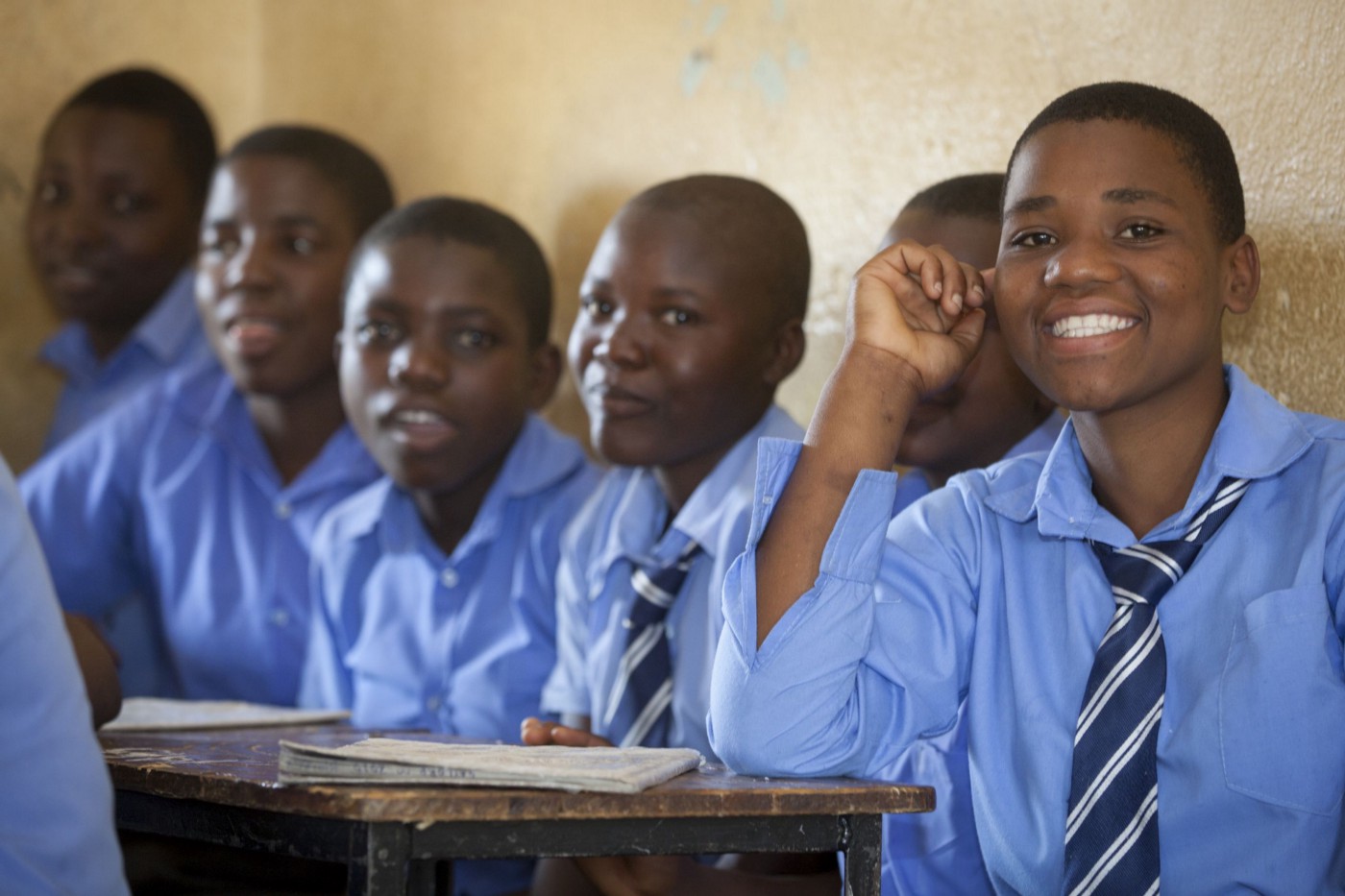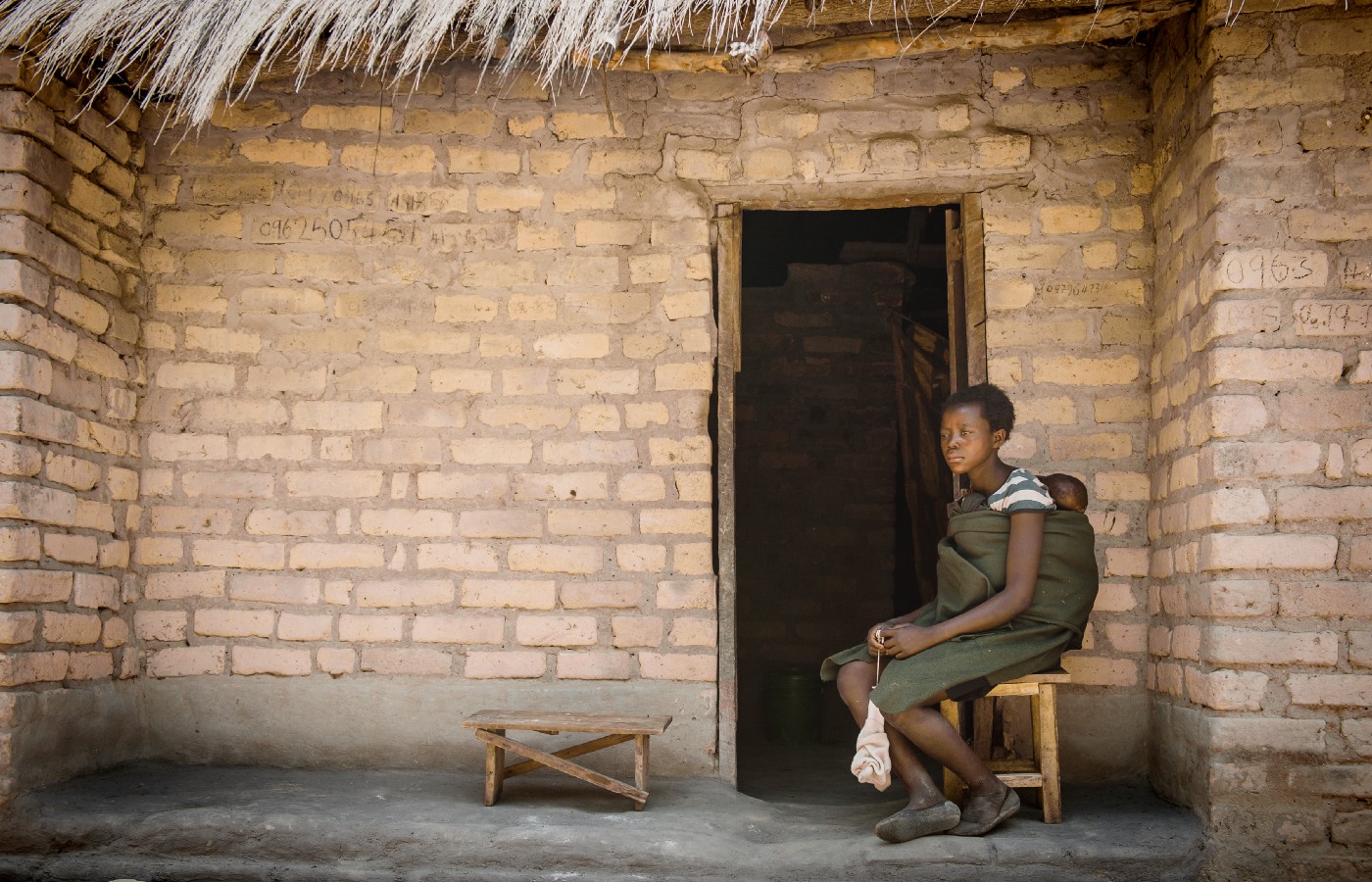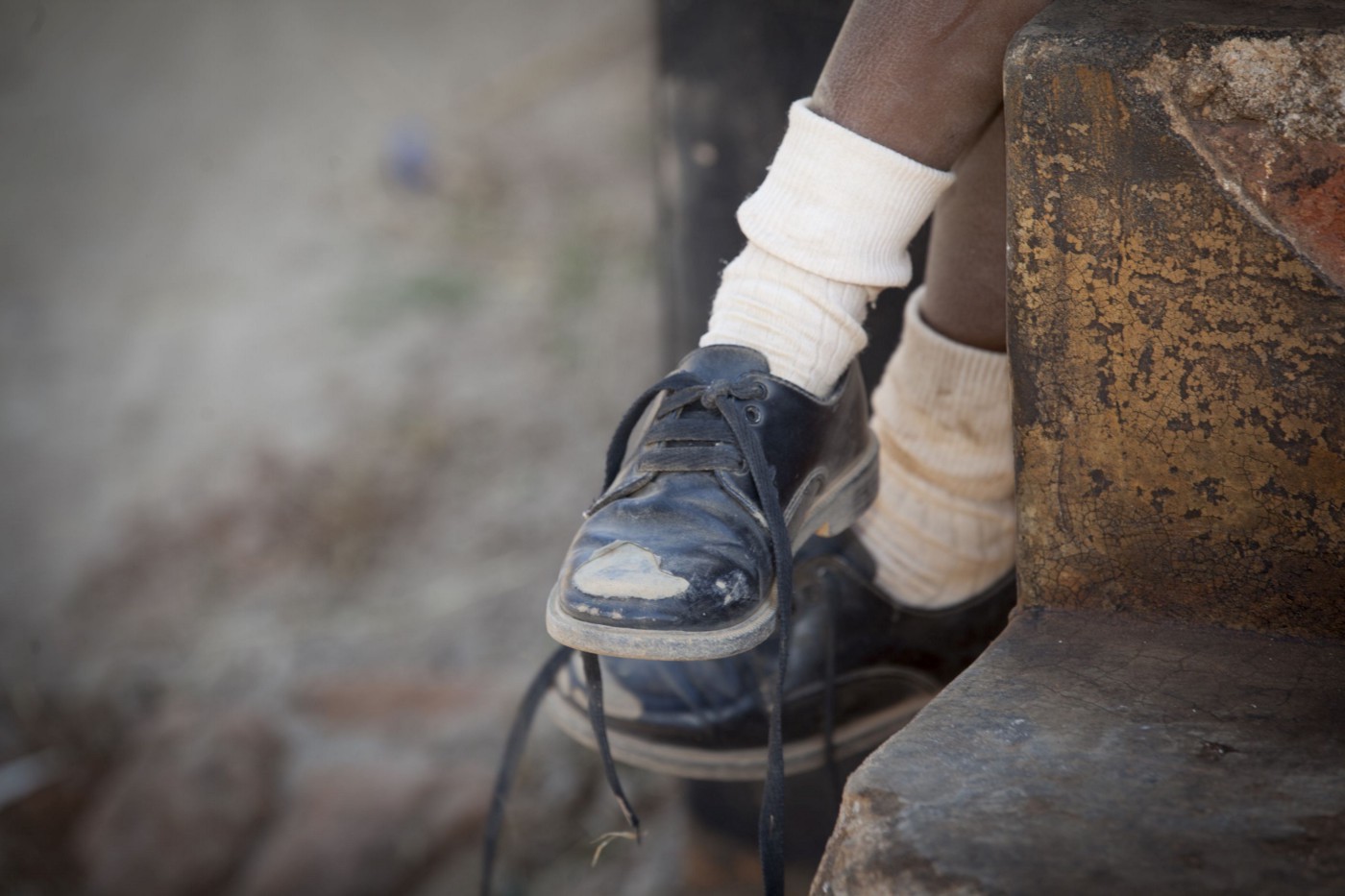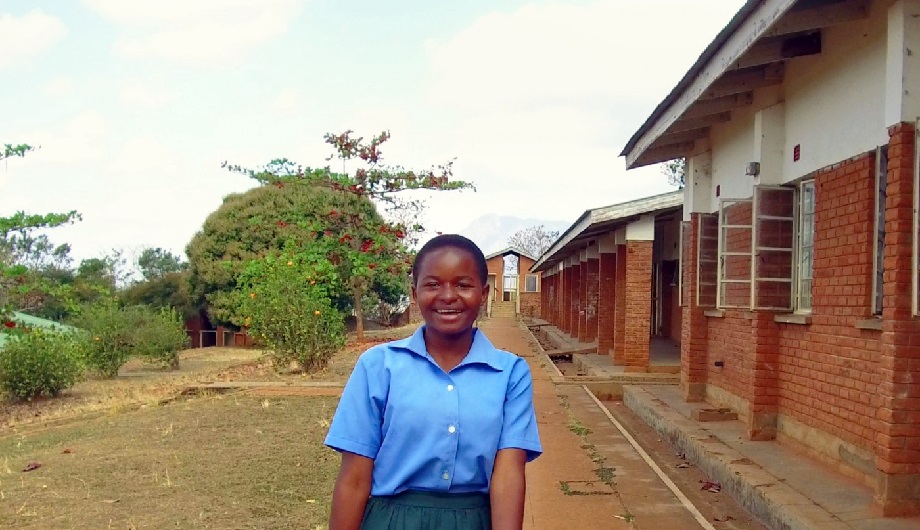If you live in a developed country, you probably take sanitary products for granted, but remember well the discomfort and embarrassment you or female students in your class faced at school when they were caught out, or a pad leaked.
You may know children who occasionally miss a day at school because of severe discomfort. But imagine a situation where missing three to five days of school every month has become the norm for students — where sanitary protection is unaffordable, the toilets at school barely private, and menstruation itself is misunderstood and thus fraught with taboos.
Indeed, according to UNESCO, 10% of adolescent girls in Africa miss school during their period. They miss an average of 528 school days — nearly two years of learning!
The money I needed to buy products for just three days a month was equivalent to the amount we paid for a three-day supply of grain for the whole family
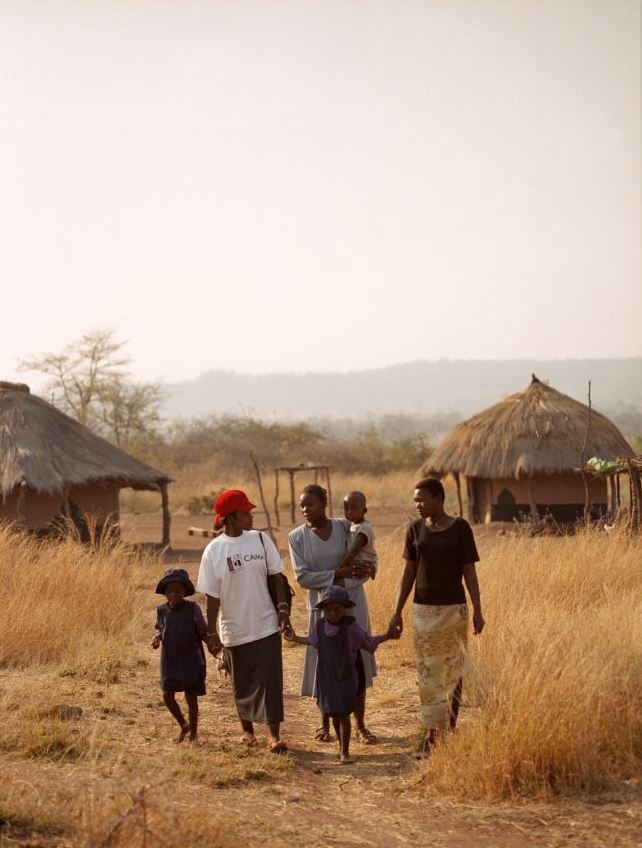
Me (in the white t-shirt) not long after I graduated and founded the Camfed alumnae network, CAMA
I’m from a very resource-poor area of rural Zimbabwe, where marginalized girls and women are excluded from many things — but not from normal biological changes. For those who struggle to afford food, school fees, or a school uniform, the cost of sanitary pads — around $24 a year — is simply out of reach. I recall being so angry when my period arrived, swearing under my breath, “It never rains but it pours. As if it’s not enough for me to worry about how to afford bath and laundry soap…” The money I needed to buy products for just three days a month was equivalent to the amount we paid for a three-day supply of grain for the whole family.
And I simply could not afford to spend even more time tilling someone’s land and missing my studies in order to raise money to buy sanitary pads.
In class you would alert the girl sitting behind you to let you stand first if you feared that you had spoiled your dress.
Girls will find risky alternatives to sanitary pads, including leaves, unprocessed cotton, tissues, newspapers, used exercise books, or old cloths. Poverty forces them to make tough choices: either you use this inadequate protection or you miss school. I remember the distinct smell that would follow girls who dared to walk the long distances to school during ‘those’ days, emanating from clothes or backpacks. I had a beige school uniform, just another force I felt was converging against me. You learn to stay away from the sun or vigorous activity. In class you would alert the girl sitting behind you to let you stand first if you feared that you had spoiled your dress. She could protect you from view or give you the ‘all clear’ sign. That was good teamwork, but I did not like the ‘teamwork’ that meant that all those who had ‘started’ had to clean up the mess caused by leaking pads or cloths that accidentally fell off — if no one owned up.
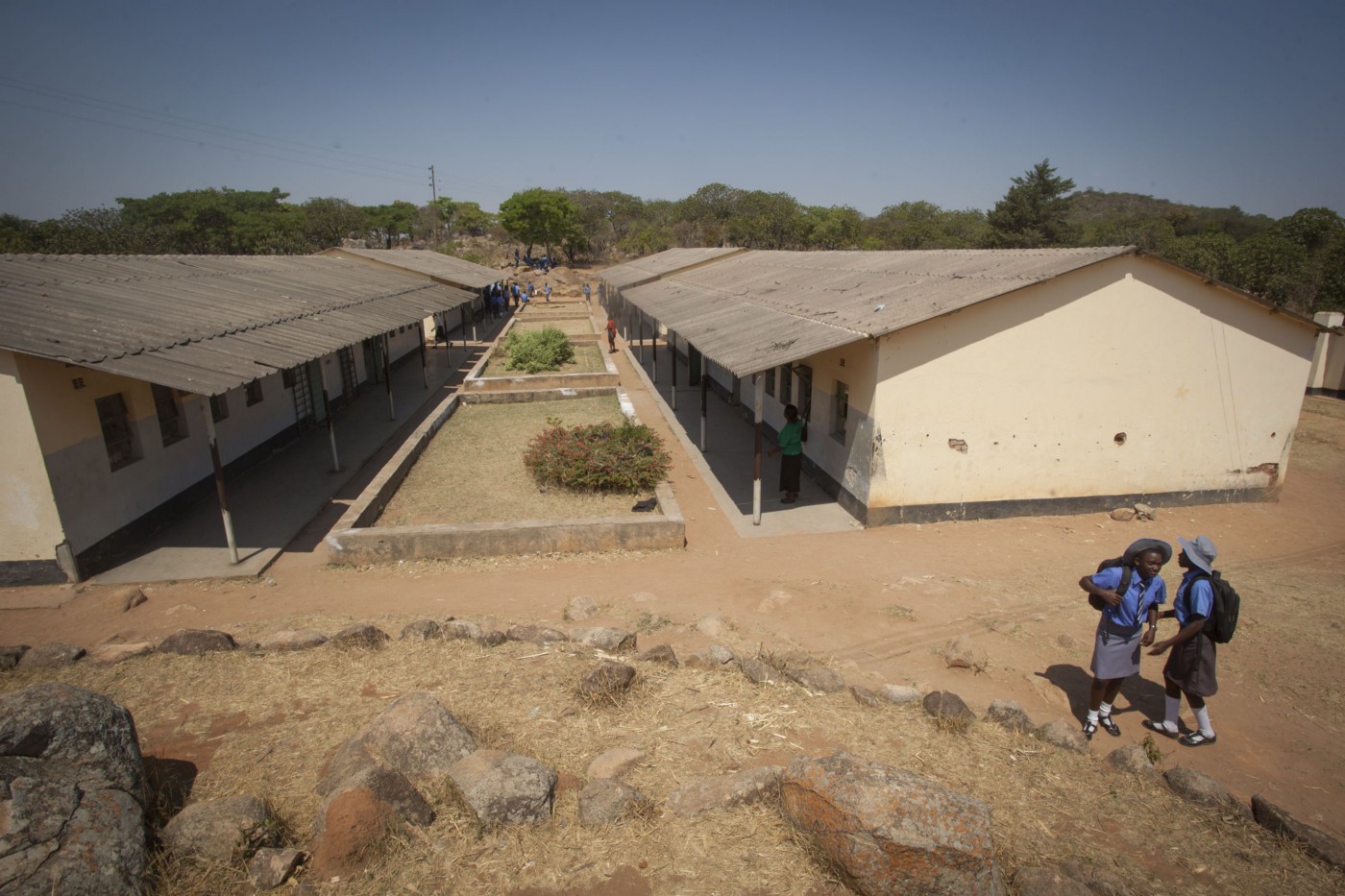
A Camfed partner school in rural Zimbabe. Photo: Camfed/J Pilch
Most rural schools don’t have adequate toilet facilities — nothing that is clean, private or safe, where you can change the cloth or have water or soap to clean up after an accident. We kept our school toilets clean, but it was a tiny space with no room for you to squeeze into with a bag to comfortably change your cloth, packing the soiled one to take home.
The lingering smell of burning blood would haunt you all day
At my school’s hostel complex, girls were required to perform ‘burning duties’ of any protection used on the previous day. The ‘burning point’ was located where the boys could see you, and we had to poke around with a stick to make sure everything actually burned. It was not unusual to find soiled cloths, socks, hats, or t-shirt sleeves as girls made do. The lingering smell of burning blood would haunt you all day, while the boys would jocularly confront you and accuse you of ‘burning babies’.
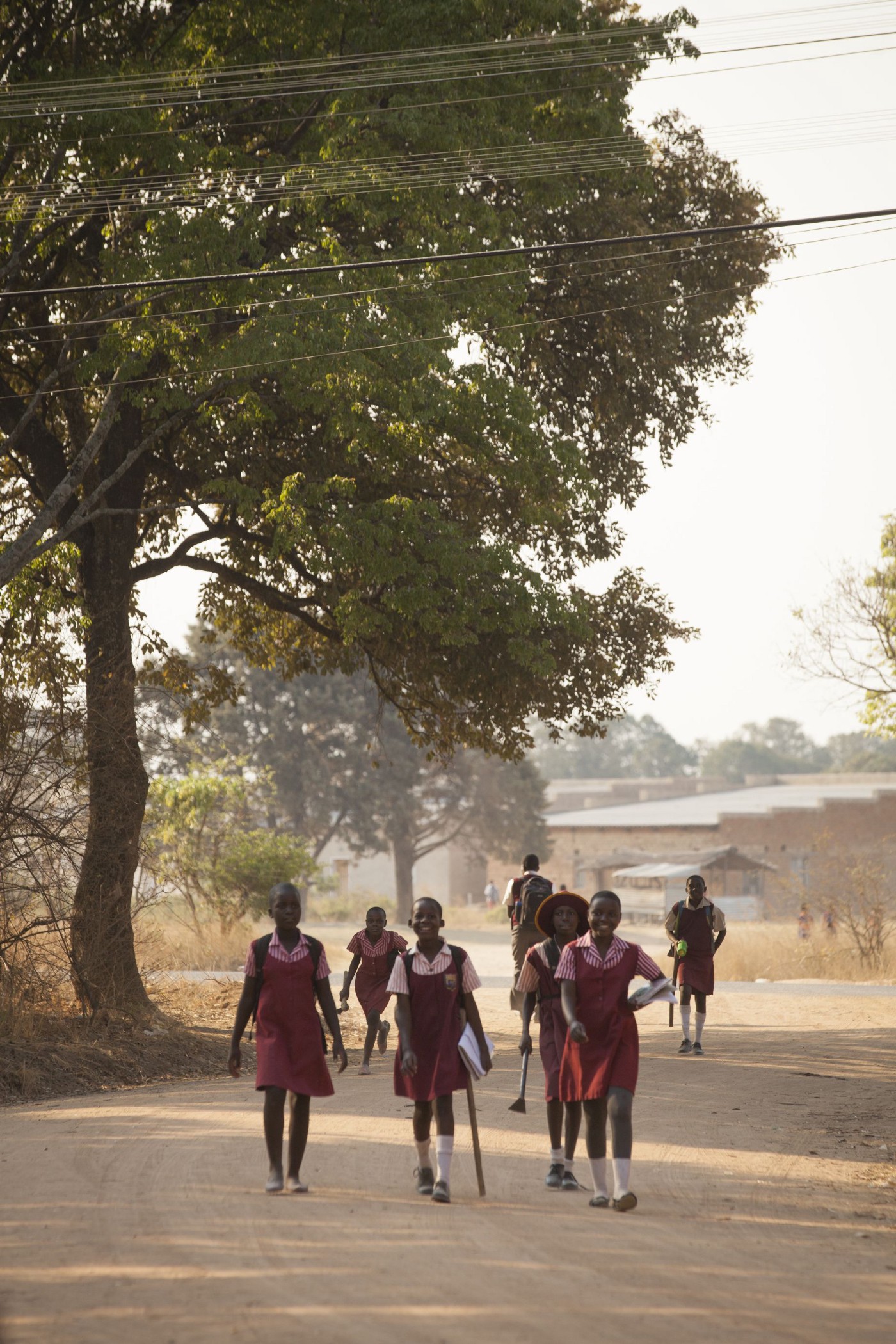
Photo: Camfed/J Pilch
The embarrassment all this causes in front of other pupils — and especially boys — is too much to bear for many girls. If they do not have adequate protection from spoiling their uniform, they will opt to stay at home during menstruation.
Just like other material needs that are essential for girls’ physical and psychological well-being, hygienic pads are crucial for female students to feel secure, concentrate on their studies, and attend school regularly. Girls who miss six weeks of school per year are even less likely to keep up with the curriculum, do well in exams, and complete their secondary education — just because of a natural process they cannot avoid.
Some organisations are trialing reusable pads, handmade from soft cloth and foam, as a cheaper, sustainable option for girls. While these are better than the risky alternatives, there are also worrying shortfalls. Consider that you need to have water and soap to wash these pads. In a context where some communities have to dig holes in a dried river bed for drinking water, there won’t be enough water to wash sanitary supplies. Even where there is a flowing river, most girls would not dare to wash them in public. Imagine having to fetch buckets of water to clean a pad in the privacy of your home; the time spent travelling long distances would eat into the precious time for homework, and your many other household chores.
Wet and ineffective pads expose girls to additional health risks
In addition, most girls are too embarrassed to hang pads up in the open, where everyone can see them, although the sun is vital in destroying bacteria. So they might try to dry them in dark corners, and end up using pads that are still wet and ineffective, exposing themselves to additional health risks, such as urinary tract infections.
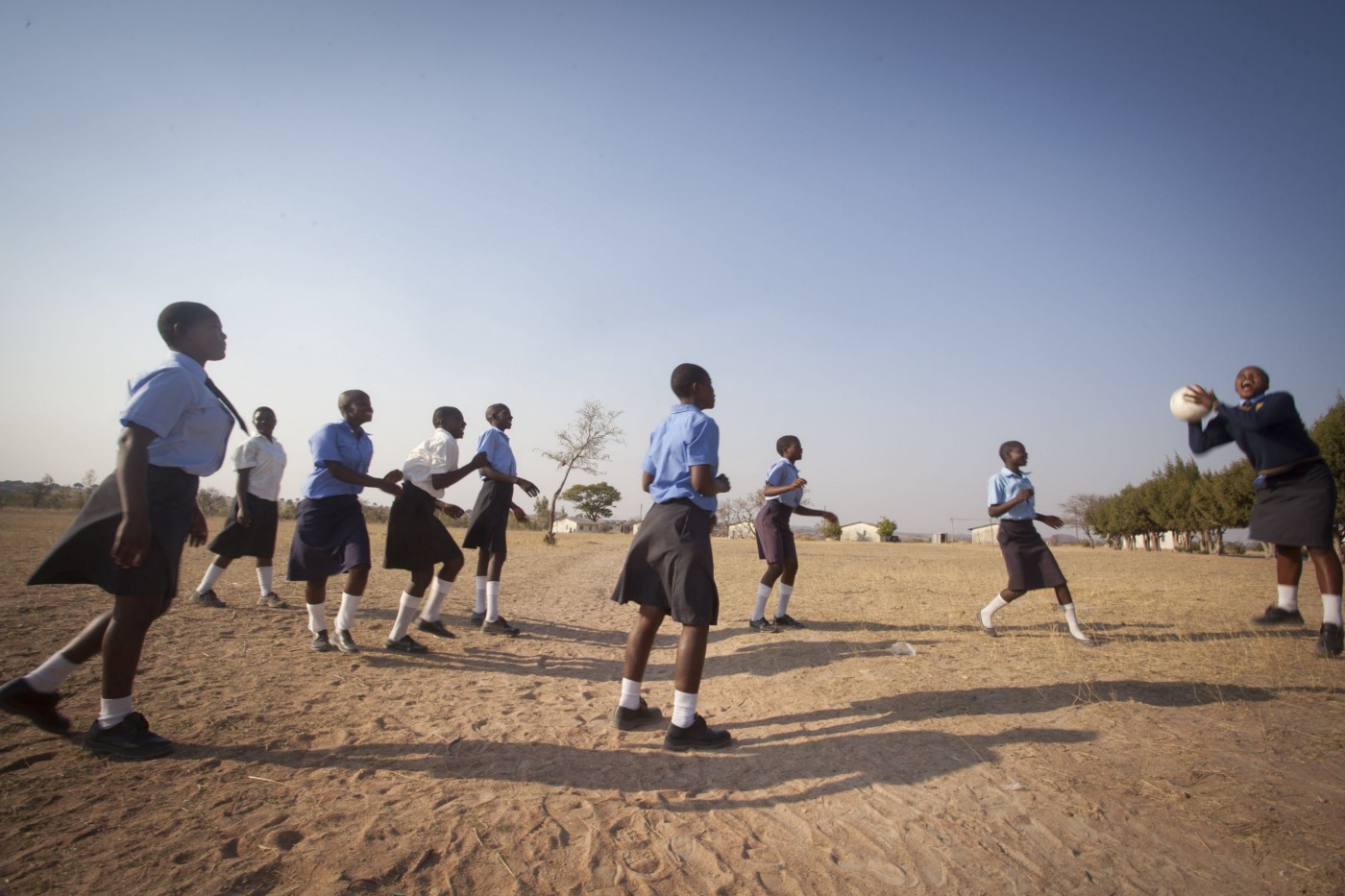
Hygienic pads are a basic need for girls at school. Photo: Camfed/J Pilch
We need to support all girls to have the knowledge, and the basic supplies to enter womanhood with confidence and pride, not fear and embarrassment.
Hygienic pads are a basic need for girls. As such one would expect governments to provide them for free, or to subsidize them. But NGOs like Camfed (the Campaign for Female Education) — which once supported my education and whose programs I now lead in Eastern and Southern Africa — currently bear this effort. We include high quality disposable sanitary pads as part of our holistic bursary package for disadvantaged girls. We advise our School Based Committees to procure only recognized brands from reputable suppliers, because there are imitations on the market, where the inner part of the pad disintegrates, offering little protection.
It’s this attention to detail, and the understanding of context, that is so vital if we are to break down the gender barriers in education. We need to support all girls to have the knowledge, and the basic supplies to enter womanhood with confidence and pride, not fear and embarrassment. In very real terms, their futures — and ours — depend on it.
This blog was first published as an article in TES Magazine — a weekly publication aimed at school teachers throughout the UK.
Angeline Murimirwa was one of the first young women to receive support from Camfed to go to secondary school in Zimbabwe. Camfed is an international NGO which supports girls in the poorest, most rural districts of sub-Saharan Africa to go to school, succeed, and lead. Angeline, who excelled in all her studies, became a key founding member of CAMA, the pan-African leadership network of young educated women. Today Angeline is the Executive Director of Camfed for Africa, leading programs to unlock the potential of hundreds of thousands of girls.
Join our movement here.
